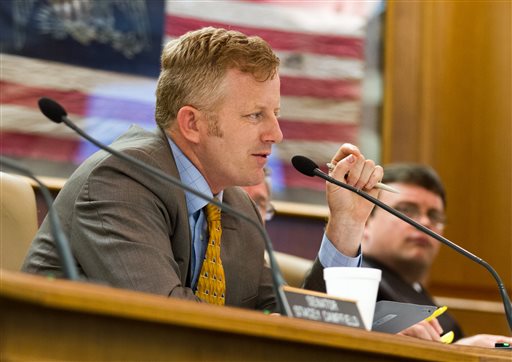In Board of Regents of the University of Wisconsin System v. Southworth, 529 U.S. 217 (2000), the Supreme Court held that a public university may charge students an activity fee to fund extracurricular student speech, provided the program is administered in a viewpoint neutral manner.
Justice Anthony M. Kennedy delivered the opinion of the unanimous Court, which was consistent with an earlier decision involving the use of student activity fees to fund religious speech in Rosenberger v. Rector and Visitors of the University of Virginia (1995).
University allocated student activity fees to political groups
The Court had been asked to decide the constitutionality of a university funding system that allocated student activity fees to groups that held political or ideological views with which some students disagreed. The Court borrowed the “viewpoint-neutrality” standard from its public forum cases and based its decision on Abood v. Detroit Board of Education (1977), which limited union expenditures collected from nonunion members, and Keller v. State Bar of California (1990), which applied similar limitations to fees collected from individuals who were not members of the bar.
Although these cases supplied the basis for identifying the interests of the protesting students, the requirement that the cases established — that monies collected from nonmembers be germane to the purposes of the association — were neither applicable nor workable in the context of extracurricular student speech.
Court upheld the allocation system as long as it was viewpoint neutral
Kennedy explained that at public universities, all forms of speech are arguably germane, because one goal of the university is the free exchange of ideas. Regarding activity fees, Kennedy wrote, “When a university requires its students to pay fees to support the extracurricular speech of other students, all in the interest of open discussion, it may not prefer some viewpoints to others.”
As long as the university maintained a viewpoint neutral “operational principle,” it would not violate the First Amendment interests of objecting students.
The Court did not address the constitutionality of an alternative funding scheme, which allowed funds to be allocated by student referendum.
Souter said student fee was like a tax used to promote general discourse
Justice David H. Souter — who was joined by Justices John Paul Stevens and Stephen G. Breyer — concurred, saying that the Court need not place a “cast-iron” viewpoint-neutrality requirement. Rather, he felt that the First Amendment interests claimed by Scott Harold Southworth and his fellow students were insufficient to warrant any protection greater than that already afforded by the university.
Unlike the teachers and lawyers in Abood and Keller, whose organizations collected dues and engaged in political and ideological activity, the students here were merely funding a distributing agency, which itself had no advocacy or message.
This level of attenuation was enough, in Souter’s mind, to remove the need for a constitutional viewpoint-neutrality requirement. Souter viewed the student activity fee as akin to a tax, and prior case law allows the government to use its tax money to promote general discourse.
Alan Tauber is a constitutional law attorney in Washington. In addition to a law degree from George Washington University School of Law, Tauber has a master’s degree in political science. This article was originally published in 2009.

